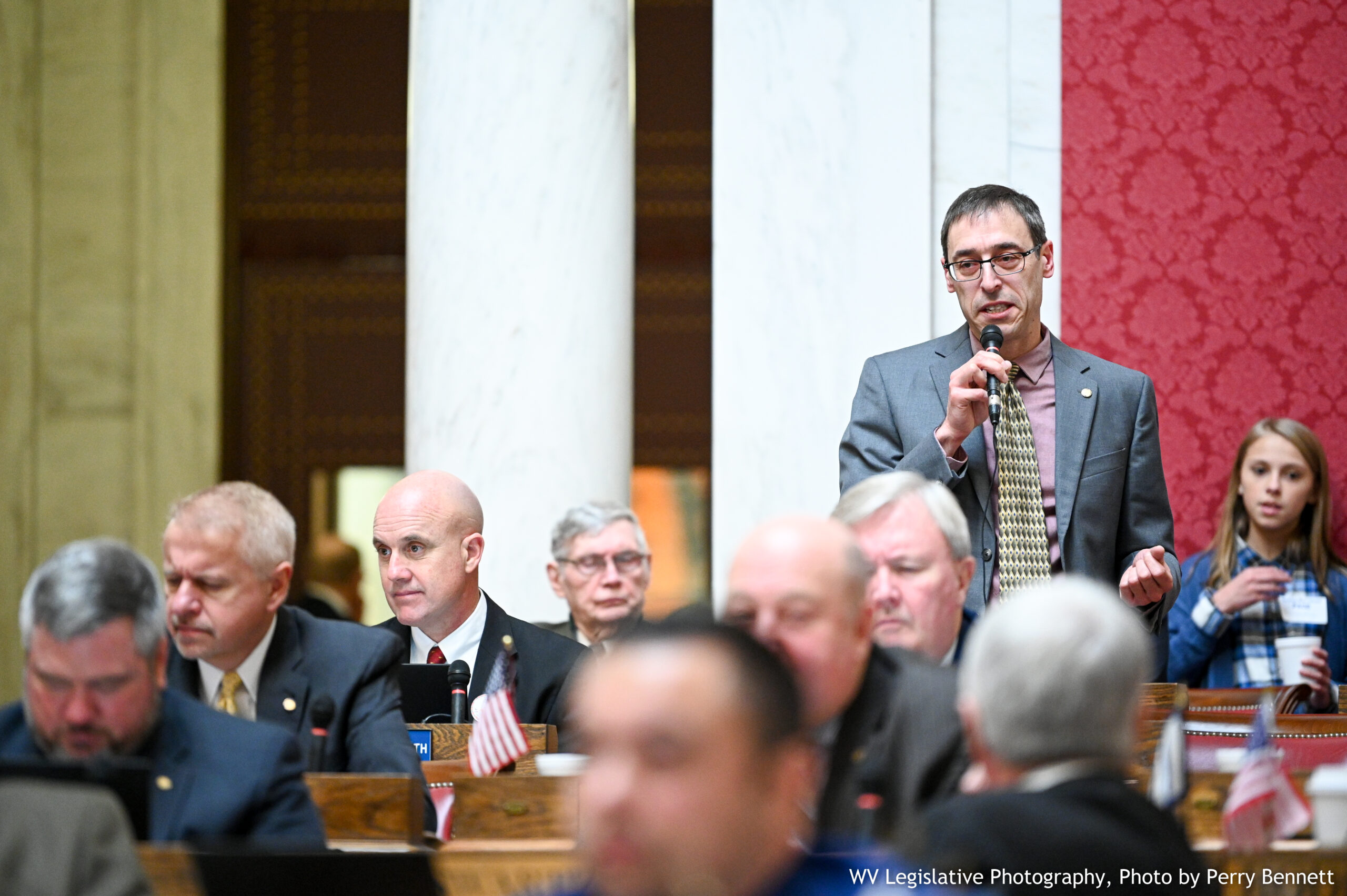MORGANTOWN — The House and Senate breezed through passage of a handful of bill Monday, including one to raise money to cap orphan gas wells and one to preserve confidentiality of nonprofit organization donor lists.
Also in the Senate, Economic Develop chair Chandler Swope, R-Mercer, talked at length about West Virginia’s lagging natural gas industry and questioned what might be done to pep it up.
HB 4091 sets up a process and fee structure for expedited horizontal gas well permitting. The bill devotes half of the fee income to the Department of Environmental Protection and half to orphan well capping.
The typical permit fee for a horizontal well is $10,000 for the first well on a pad and $5,000 for each additional well. The fee doubles under the expedited process: $20,000 and $10,000, respectively. Barring the need for additional information, the DEP has 45 days to grant or deny the permit. For each day from 46 to 60 days, it must refund a prorated amount that eventually results in a full refund of the extra money by the 60th day.
The bill also creates a permit modification fee of $5,000.
Half of the new revenue goes to the DEP’s Oil and Gas Operating Permit and Processing Fund for the Office of Oil and Gas to process permits, up to $1 million annually. Part of the money will cover an additional OO&G staff member to do the expedited process.

The other half of the money, plus anything above the $1 million, will go to the Oil and Gas Reclamation Fund.
Delegate Evan Hansen, D-Monongalia, supported both purposes of the bill. He added that there remain two further issues for legislation.
One of them concerns the financially challenged Oil and Gas Operating Permit and Processing Fund, an issue discussed in the Energy Committee. The office is dependent entirely on permit fees and when applications are down its revenue goes down. It’s running a monthly deficit that other DEP agencies are backfilling.
The other, he said, concerns abandoned and orphaned gas wells. This pays for capping some of the many thousand wells, but doesn’t do anything to prevent creation of new ones.
“I hope we can address both of these issues during the session,” he said.
HB 4091 passed 98-0 and goes to the Senate.
Two other House bills on third reading weren’t taken up. HB 4062 deals with lowering prescription drug costs; action was postponed a day. HB 4096 deals with political candidate residency and was moved to the inactive calendar where it might sit idle for a while or just die.
The Senate passed three bills unanimously and without discussion and sent them to the House.
SB 16, the Protect Our Right to Unite Act, says a state public agency may not compel disclosure of donor or membership rolls of any tax exempt organization. If the agency obtains it, it may not disclose the information without permission of the organization or donors or members. Lawful court orders are exempted. It sets up a cause of legal action for wrongful disclosure.
SB 42 says comprehensive drug awareness and prevention programs offered in K-12 schools may include faith-based electives for drug awareness. The state school board would craft a rule to make sure the electives are constitutional.
SB 225 creates a municipal Adopt-A-Street program similar to the existing Adopt-A-Highway program. Individuals, families, churches, businesses, schools, civic organizations, government agencies, scouting groups, fraternities, and communities may adopt a street for two years and commit to three cleanups each year. Adopted streets must be at least six blocks long.
Natural gas woes
Swope said he’s been studying information about West Virginia’s natural gas production and sales as compared with neighboring Ohio and Pennsylvania.
“I found this information to be quite disturbing.”
During the period 2008-2018, he said, West Virginia’s sales increased six-fold, which sounds good. But Ohio’s sales grew 24 times and Pennsylvania’s 31 times.
In 2008, he said WV had half the tristate market, Pennsylvania had one-third, Ohio had one-sixth. In 2018, West Virginia has one-sixth, Pennsylvania 60%, Ohio 24%.
“We don’t have something right here in West Virginia,” he said. It may be tied to severance taxes, to lack of pipeline development, or other factors. He wants to study it more and invited others to join him.
“To know what to do we have to know what we did wrong in the past that caused this trend to just take what the gas industry handed us on a silver platter and send it to our neighboring states,” he said. Figuring out the problem and solution could affect the state’s prosperity for the next 50 or 100 years.
Tweet David Beard @dbeardtdp Email dbeard@dominionpost.com




